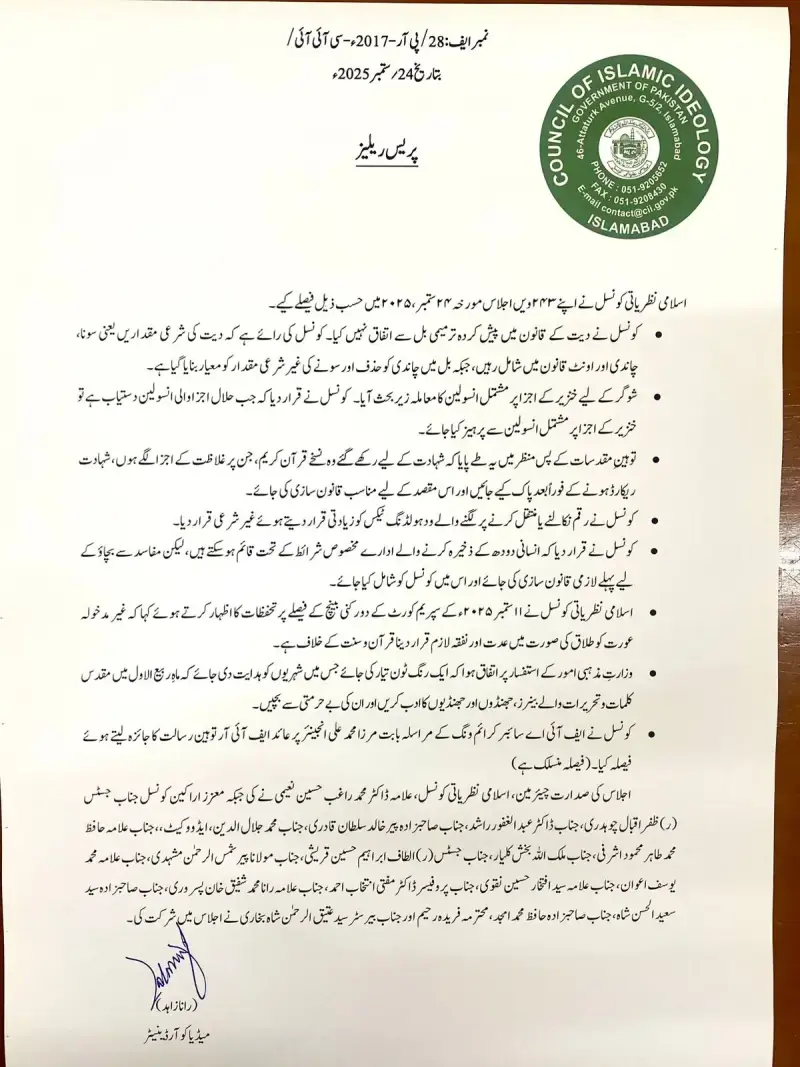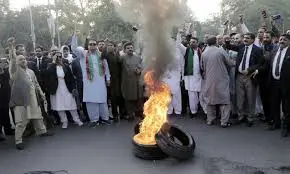Council of Islamic Ideology backtracks on declaring withholding tax un-Islamic
The Council of Islamic Ideology (CII) has retracted its earlier decision that declared withholding tax on bank withdrawals and transfers un-Islamic, clarifying that the matter remains under review and no final verdict has been reached.
In a corrigendum issued on Wednesday, the CII said its earlier press release gave the impression that the council had issued a final ruling against withholding tax.
However, the council explained that only a preliminary debate took place in which members expressed differing views. The matter, it added, will now be referred to experts for consultation before being discussed in detail at the next session.
The correction came hours after the CII’s official press release declared withholding tax on banking transactions to be “unjust and contrary to Shariah.”
The move sparked immediate debate, especially as the National Assembly’s Standing Committee on Finance had recently approved raising the tax rate from 0.6% to 0.8% effective June 14, 2025.
Separately, the CII also expressed reservations over the Supreme Court’s September 11 ruling, which made mandatory the payment of maintenance (nafaqah) to a wife even before consummation of marriage.

The council said the judgment was “against the Quran and Sunnah,” arguing that maintenance obligations begin after rukhsati (cohabitation).
The council further reviewed a range of other religious and legal matters. It said:
• Human milk banks could be set up under strict conditions, but only after necessary legislation and CII involvement.
• It opposed proposed amendments to the law of diyat (blood money), insisting that Shariah-prescribed quantities of gold, silver, and camels remain in law. The bill’s proposal to delete silver and rely on a non-Shariah measure of gold was rejected.
• Diabetic patients may use insulin prepared from halal sources, but insulin containing pork derivatives should be avoided. The council urged legislation on this matter as well.
• Copies of the Holy Quran used in court oaths must be purified immediately after testimony, requiring legislative action.
The CII also examined blasphemy-related proceedings against religious scholar Engineer Muhammad Ali Mirza, concluding that his repeated utterances contained “statements of kufr” without any scholarly justification. It declared his conduct worthy of severe penal punishment, noting that repetition of such acts aggravated the gravity of his offense.
FBR to challenge CII stance
Meanwhile, sources in the Federal Board of Revenue (FBR) confirmed that the government has decided to challenge the CII’s stance on withholding tax in the Supreme Court.
Officials said the revenue authority strongly disagreed with the council’s position and would seek judicial clarification.
For the latest news, follow us on Twitter @Aaj_Urdu. We are also on Facebook, Instagram and YouTube.

























Comments are closed on this story.